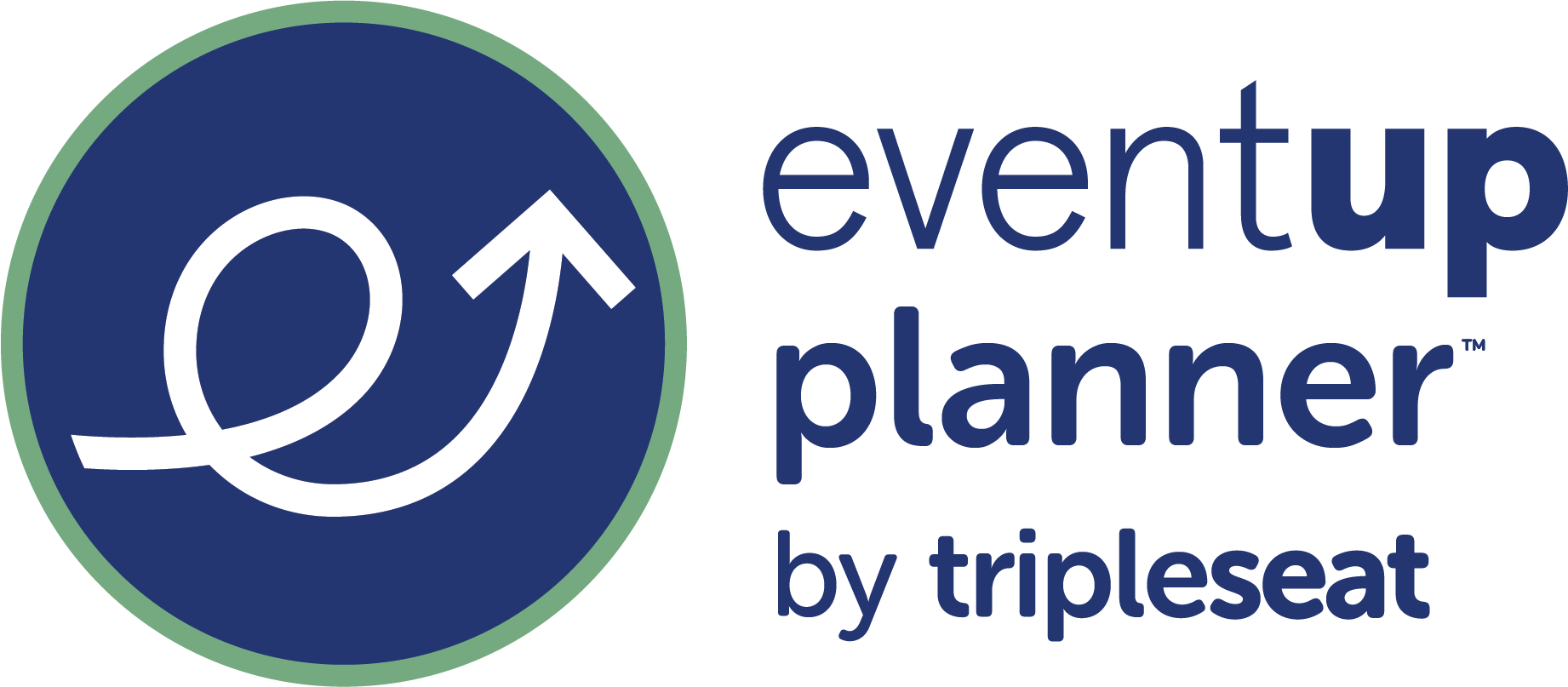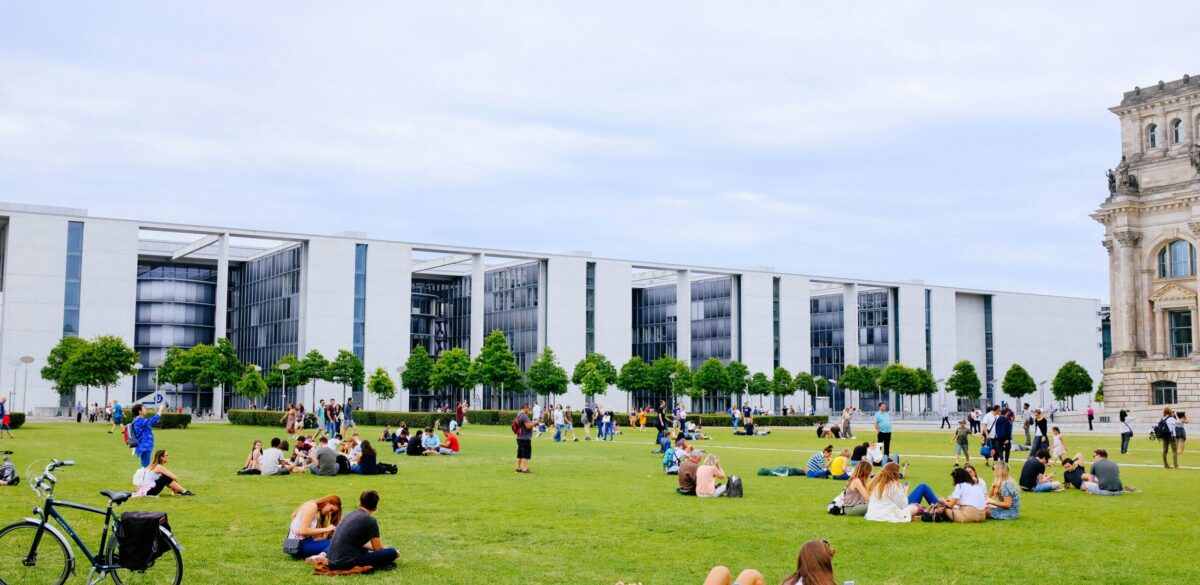Imagine you put in weeks of work planning an event for students and community members, but only a few people show up. If this feels too familiar, it may be time for some new college event promotion ideas.
From event promotion to thank-you messages, communicating with your participants is critical for securing initial buy-in and sustained engagement. To help you sharpen your communication tactics, we’ve compiled six actionable tips:
- Create an event landing page on your website
- Develop a multi-channel strategy
- Leverage marketing automation
- Personalize event outreach
- Send text reminders and updates
- Don’t forget to follow up
When using any of these tips, remember to keep your focus on your participants’ interests and preferences. Now, let’s dive into our top six college event promotion ideas!
1. Create an Event Landing Page on your Website
Your university’s website is often the first place for students, alumni, and community members to find information about upcoming events. If you don’t already have a landing page for your next event, creating one should be your first step.
An event landing page, or a separate microsite for major events, lays the groundwork for effective communication. Once you have one set up, your website will serve as a source of truth for participants seeking the most up-to-date information. You can link to this page in the rest of your marketing materials and direct participants there for questions.
To set yourself up for success, make sure your landing page or website includes all important event information, including:
- Date, time, and location
- Where and how to register
- If registration is required
- Ticket price, if any
- The purpose of the event
- Any speakers, performers, or special guests
- A schedule if the event lasts multiple days
- Transportation or parking instructions
- Contact information
Along with key information, you can make the page extra engaging by adding photos from last year’s event or integrating your social media feed.

2. Develop a Multi-Channel Strategy
Once you set up your event’s landing page, create a communication strategy that uses multiple channels to get the word out. Use a combination of:
- SMS: Mogli’s SMS marketing guide explains that texts are one of the most effective communication methods because of their 98% open rate and ease of use. Your students and alumni likely check their text messages more often than any other channel. This makes texting the perfect way to promote your event. Send short, casual announcements and reminders to register for the event on your website.
- Email: Email often works well for sending event invitations, surveys, and more in-depth information like detailed event schedules. Make sure your subject lines include the event’s name and that they’re compelling enough to get readers to open them. Then, use visuals and links in the body of the emails to make them engaging.
- Social media: By promoting your event on social media channels like Instagram and Facebook, you can leverage social sharing to get the word out and draw in participants. Create a variety of social media content, such as graphics, videos, and stories, then encourage existing participants to share them with their friends and classmates.
- Flyers: For on-campus student events, flyers are a necessity. Align the design of your flyers with your social media posts, then hang them up throughout campus in the most relevant locations. Add a QR code so students can easily scan to register for the event or find more information.
Think about your target audience as you choose marketing channels. If your participants are only on-campus freshmen, for example, you might focus on social media and dorm or classroom flyers to get the most visibility for your event. If your event is aimed at older alumni, however, prioritizing emails, texts, or even direct mail will get you better results.
Then, create a marketing calendar to determine what content you’ll post, where, and when. Make sure to spread out communications and maintain consistent branding across channels.
3. Leverage Event Marketing Automation
Save your team time and effort by automating emails and text messages to participants. With the right marketing automation tools, you can create email templates that auto-fill with participants’ personal details and your university or department’s branding. Or, set up reminder texts to automatically send to those who haven’t registered for the event by a certain date.
There are a variety of automation tools that can make a big difference in your event communication strategy. For example, if your university uses Salesforce, you can use a Salesforce SMS app to automate bulk and one-to-one texts to promote your event.
Plus, most marketing automation software comes with helpful data analytics features to gauge marketing success and event satisfaction. With Attendease, for instance, you can compare metrics across events and get web traffic insights by integrating your event website with Google Analytics.
4. Personalize Event Outreach
Personalizing messages to potential participants can increase the chances that they’ll read the message and attend your event. This doesn’t only apply to invitations, either. By personalizing marketing emails, event reminders, and follow-up messages, you can ensure that your outreach is relevant and engaging for each individual participant.
Start by creating segments in your database or event software for participants who have already registered and those who haven’t. Then, make additional segments within those two groups based on relevant shared characteristics, like academic department or event engagement history.
In the messages themselves, be sure to address participants by name and include any details that will make the message stand out. On an invitation for an alumni fundraising event, for example, you might include the recipient’s graduation year, program, and latest donation.
5. Send Text Reminders and Updates
Texts are one of the quickest ways to get information out to your participants and keep your event top-of-mind. Use text marketing apps to send out quick updates, announce last-minute changes, and remind guests to register and attend your event.
These quick update texts might look like:
- The STEM career fair starts in an hour! Join us in the student center at 2 pm to make your mark
- ❗ Location change ❗ Tonight’s music department welcome party has been moved to the Pressor auditorium. See you there!
- Want to watch next week’s meteor shower? ☄️ Sign up to join the astronomy professors at our stargazing event on Friday night
- Ella, there’s still time to register for Alum Weekend. Relive the glory days this May 23-25. Tickets are only $30!
Don’t be afraid to get creative and keep texts casual by using emojis and a friendly tone (as long as it aligns with your audience’s preferences).
6. Post Event Communication
Communication shouldn’t stop after the event ends. Following up with guests afterward is crucial to building relationships and encouraging future attendance.
Whether you send emails, texts, or other kinds of messages, your follow-up should accomplish two main goals:
- Appreciation: To show attendees you appreciate them and keep them engaged even after the event ends, send thank-you messages to all of your participants, volunteers, and speakers. Consider sending different types of messages based on involvement. While you might send short thank-you texts to guests, for example, eCardWidget recommends sending handwritten thank-you cards or even goodie bags as small gifts for volunteers.
- Gathering feedback: By asking for feedback, you’ll collect valuable information to improve your next event and show participants you value their opinions. Use event management software to send post-event surveys that ask questions about guests’ experiences, satisfaction, and suggestions for the future.
Depending on the scale of your event, you may send a single follow-up message or spread out multiple communications over a short period of time. For example, you could send a quick thank-you text to all alumni participants the day after the event, then follow up in a week with a longer email and a feedback request.
As you test these college event promotion ideas, take note of which ones are the most effective for your audience. Use the data you gather from this event to improve the next one, and always be open to feedback from your participants.
Attendease software helps many higher education organizations manage their yearly calendar of events, big and small alike. Talk with one of our experts and let us know what your calendar looks like and what you’re struggling with. We’re here to help.
Simplify the Complexity of Managing Your Meetings and Events with a Powerful Suite of Tools
Make your attendees gather with ease. From small to large and complex events – plan and manage all of your events in one flexible platform – Attendease.

